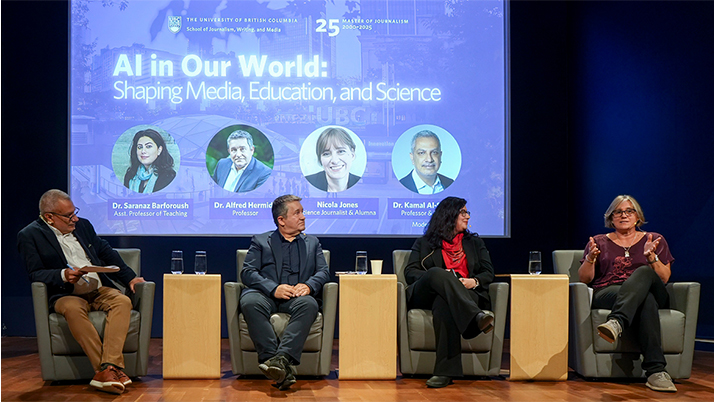The increased competition for attention in the digital era has not eroded public confidence in the mainstream news media, according to a study by researchers from the University of British Columbia’s Graduate School of Journalism.
According to a recent online survey of 1,682 adults, nine out of 10 Canadians judged information provided by traditional news media to be reliable and trustworthy, compared to only one in four who say information from social networks is reliable.
The report found that while younger Canadians are more likely than their elders to have confidence in non-traditional news providers, they retain strong confidence in the mainstream media as well. The study is the fourth in a series of Canadian Media Research Consortium (CMRC) reports that looks at the changing news consumption habits of Canadians.
“In an era of increasing fragmentation and competition for established news media, this is good news for traditional journalism,” says Fred Fletcher, UBC Graduate School of Journalism adjunct professor and lead author of the study, Even in the Digital Era, Canadians Have Confidence in Mainstream News Media (PDF).
Young adults have more confidence in social networking sites and blogs than average, but they still rank them far behind established news sources. Traditional news outlets were ranked as reliable or very reliable by between 83 and 88 per cent of young adults; only 33 per cent said the same about social networking sites or blogs.
Confidence in the information found on social networking sites is higher among frequent visitors to social networks. Among Canadians who visit social networks at least daily, some 40 per cent regard the information found there as reliable.
“Social media and other information websites are used by many Canadians for new alerts and alternative perspectives, but the established news brands continue to be the gold standard for verification,” says Fletcher, who authored the study with UBC researchers Alfred Hermida, Darryl Korell and Donna Logan.
Although trust in established news media remains quite high, habitual consumption of news is declining. Canadians under 35 years of age are significantly less likely to regard keeping up with the news as an important part of their daily activities whereas almost all Canadians older than 55 think keeping up with the news is important.
“Traditional media remain an important part of the information mix but, increasingly it seems, people are consulting multiple sources,” says Fletcher.
The vast majority of Canadians thinks the critical functions performed by traditional journalism are important, such as exposing abuses of power by government and other powerful institutions, reporting the story behind the headlines and providing analysis of important events.
Despite the increasing importance of non-traditional sources of news and information, most Canadians think these functions can only be performed effectively by traditional journalism, the report states.
“The traditional media are no longer the only gatekeepers of news but, even in the digital age, they remain crucial providers of verification and context,” Fletcher says.


